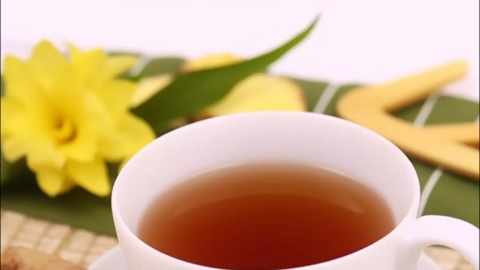Can children drink ginger soup when they have a fever?
Generally speaking, fever refers to an elevated body temperature. Whether a child with a fever can drink ginger soup depends on the specific cause of the fever. If the fever is caused by a cold due to exposure to cold (wind-cold), drinking ginger soup is generally acceptable. However, if the fever is caused by a cold due to heat (wind-heat), ginger soup is not recommended. If symptoms persist, timely medical attention is advised. The details are as follows:

When a child's fever is caused by wind-cold, such as when symptoms like clear nasal discharge, nasal congestion, chills, and generalized body aches are present, it is appropriate to give ginger soup in moderation. Ginger soup has the effect of dispersing cold and warming the middle jiao, helping to expel cold from the body, alleviate symptoms of wind-cold感冒, and promote sweating, which is beneficial for recovery.
However, if a child's fever is caused by wind-heat感冒, such as when symptoms like fever, thirst, sore throat, yellow urine, or thick nasal discharge are present, or if the fever is accompanied by gastrointestinal symptoms such as nausea, vomiting, abdominal pain, and diarrhea, then ginger soup is not recommended. This is because wind-heat requires treatment with cooling herbs to release the exterior, while ginger soup is warm in nature and may exacerbate symptoms of wind-heat感冒. Additionally, the spicy and irritating components in ginger may further irritate the gastrointestinal mucosa and worsen gastrointestinal discomfort.
When a child has a fever, it is important to closely monitor body temperature, ensure adequate hydration, maintain a light diet, allow appropriate rest, and follow medical advice for proper medication use, all of which aid in recovery.




